| Academic Program Examples | |
| 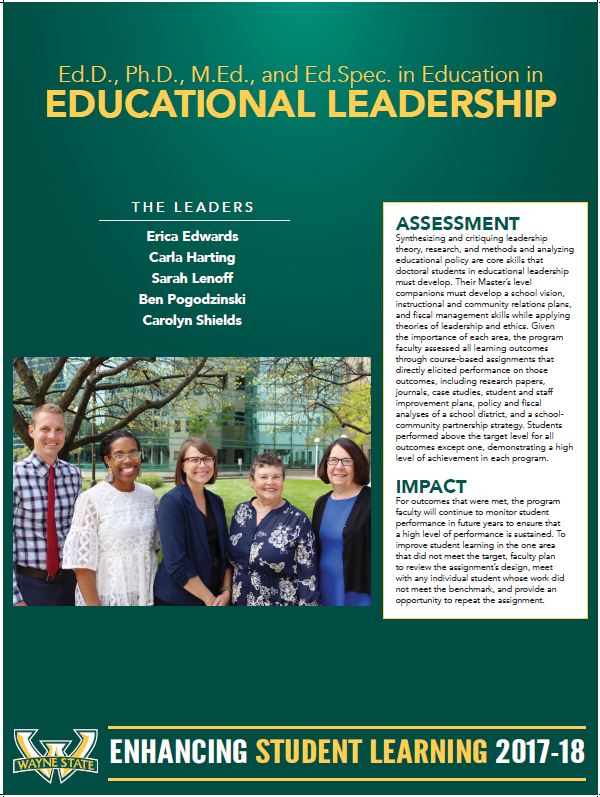
| Erica Edwards, Carla Harting, Sarah Lenoff, Ben Pogodzinski, and Carolyn Shields for the EdD, PhD, MEd, and Ed Spec in Education in Educational Leadership - Learning outcomes assessed: Students synthesize and critique leadership theory, research, and methods, and analyze educational policy.
- Assessment methods: Course-based assignments including research papers, journals, case studies, student and staff improvement plans, policy and fiscal analyses of a school district, and a school-community partnership strategy.
|
| 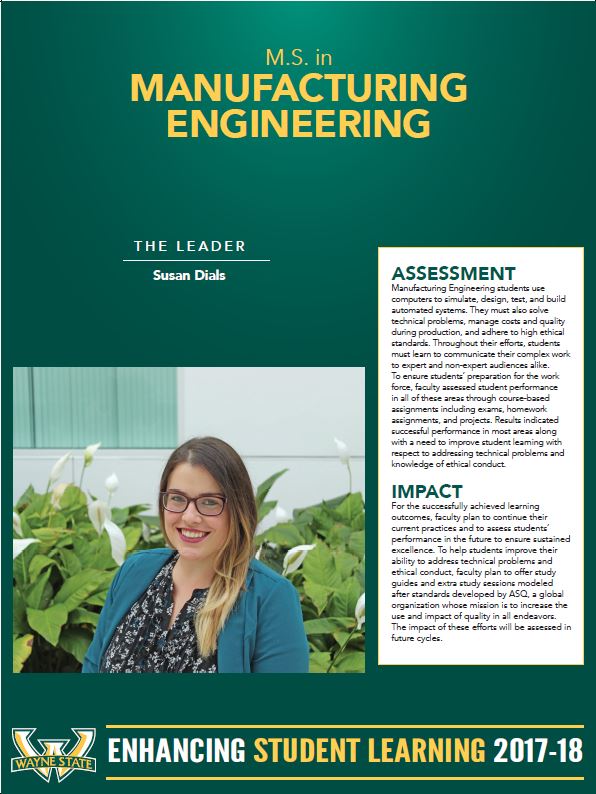
| Susan Dials for the MS in Manufacturing Engineering - Learning outcomes assessed: Students use computers to simulate, design, test, and build automated systems, solve technical problems, manage costs and quality during production, adhere to high ethical standards, and communicate their work to various audiences.
- Assessment method: Course-based assignments including exams, homework, and projects.
|
| 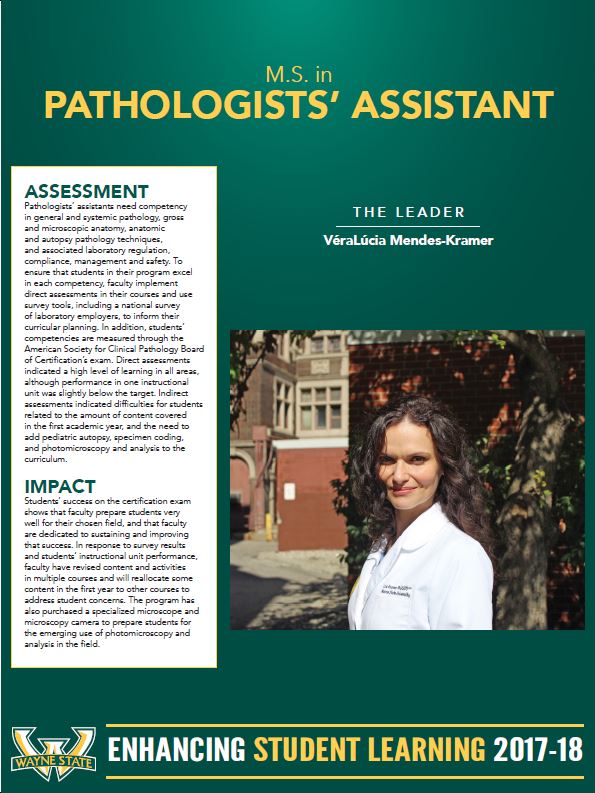
| VéraLúcia Mendes-Kramer for the MS in Pathologists' Assistant - Learning outcomes assessed: All program competencies related to pathology, anatomy, pathology techniques, laboratory regulation, compliance, management, and safety.
- Assessment method: Course-based assignments, a national board certification exam, and a national survey of laboratory employers.
|
| 
| Krista Brumley for the PhD in Sociology - Learning outcomes assessed: Foundational knowledge, specialized knowledge, methodological techniques, written communication, oral communication, and original research contribution.
- Assessment method: Rubrics for preliminary exams and dissertation defenses.
|
| 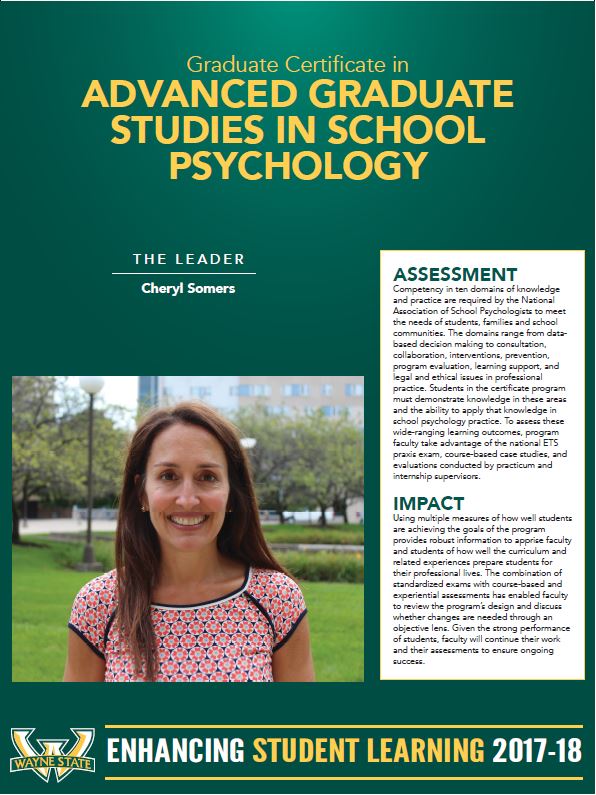
| Cheryl Somers for the Graduate Certificate in Advanced Graduate Studies in School Psychology - Learning outcomes assessed: Ten knowledge and practice domains, including data-based decision making, consultation, collaboration, interventions, prevention, program evaluation, learning support, and legal and ethical issues in professional practice
- Assessment methods: Standardized exams, course-based assessments, experiential assessments
|
| Co-Curricular/Student Services Program Example | |
| 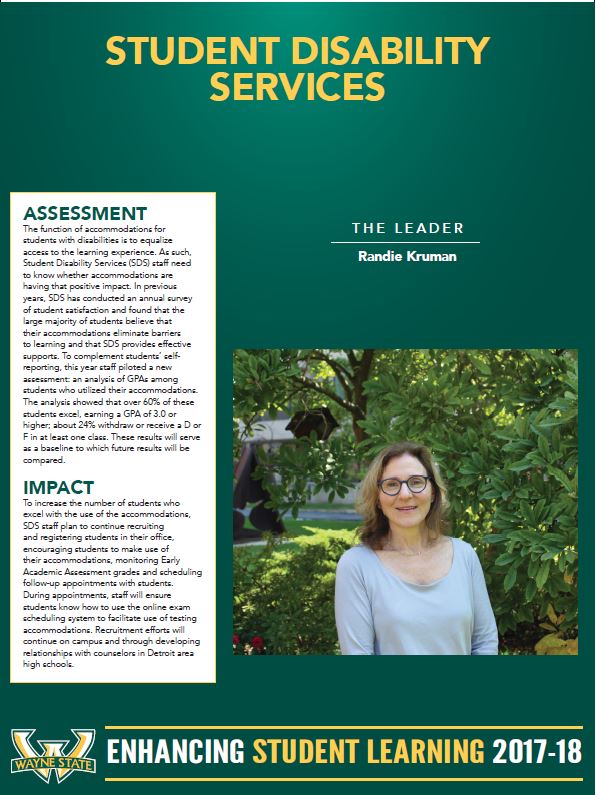
| Randie Kruman for Student Disability Services - Program outcomes assessed: Student accommodations eliminate barriers to learning and SDS provides effective supports.
- Assessment method: Student surveys, comparative analysis of student GPAs.
|